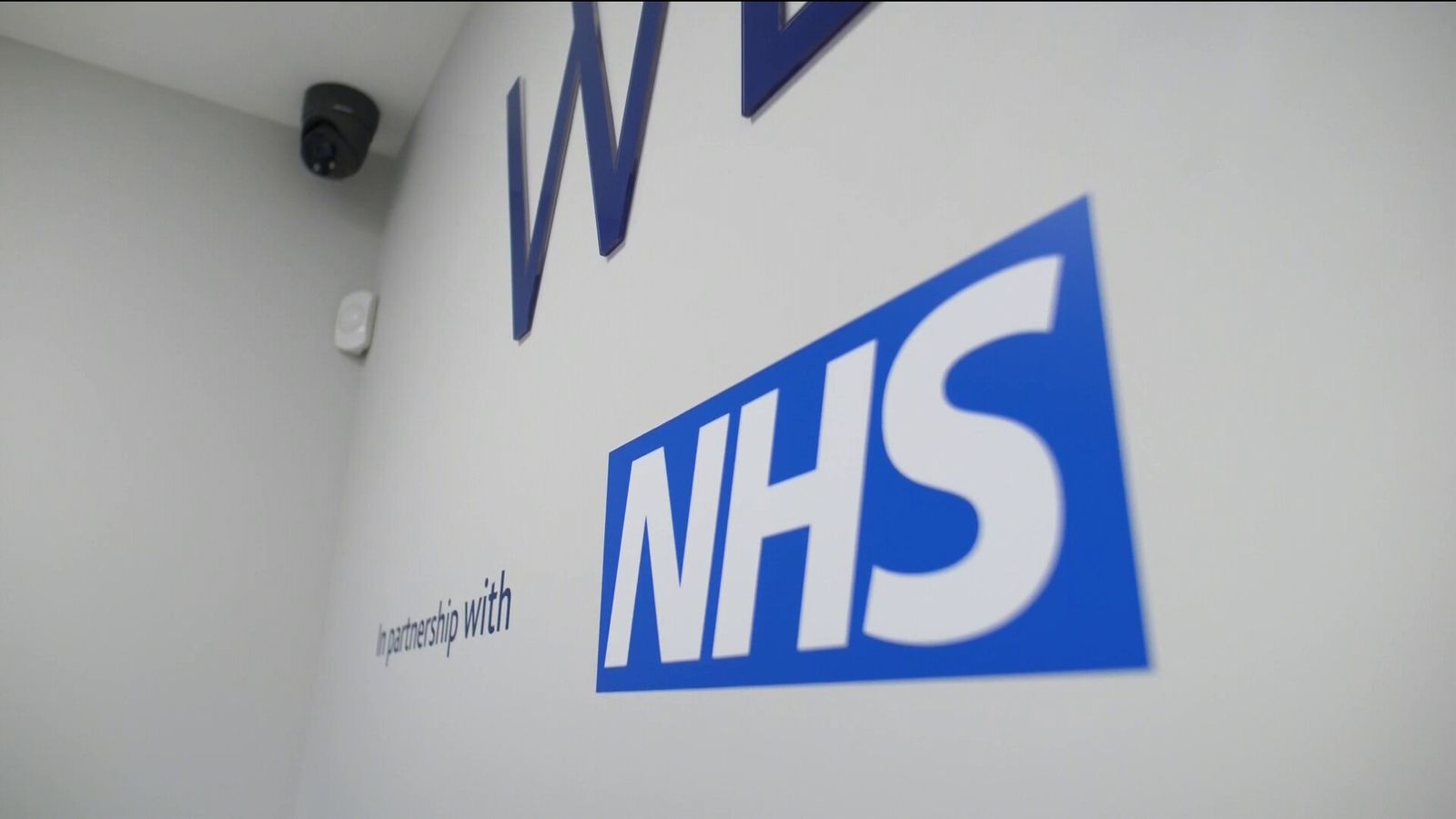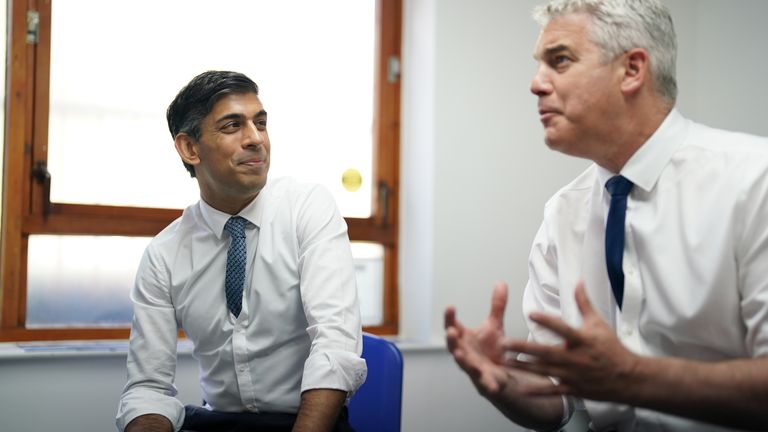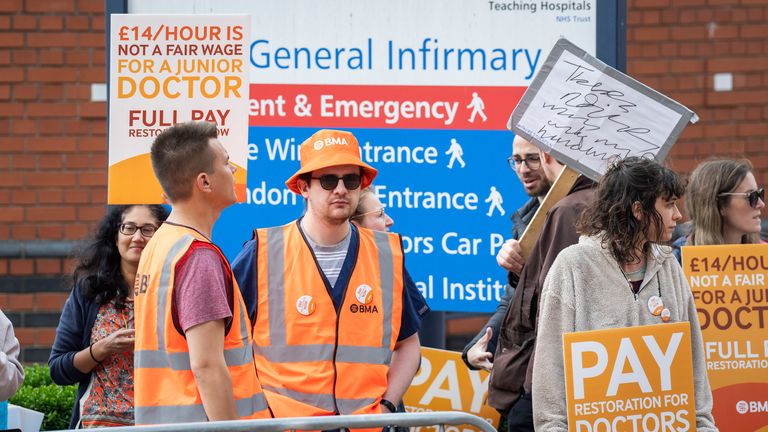More patients to be able to skip NHS waiting lists – if they can travel for treatment


Thousands of patients stuck on NHS waiting lists could be offered treatment much sooner at another facility – as long as they are willing and able to travel.
As part of government efforts to bring down record waiting lists for healthcare, the NHS is expanding its new online “matching” platform to offer more patients quicker treatment in a hospital or facility run by the independent sector anywhere in the UK.
NHS waiting lists stood at 7.47 million at the end of May, the highest number since records began in 2007.
Please use Chrome browser for a more accessible video player
2:34
The government is turning to the private sector in an attempt to cut NHS waiting lists.
The “matching” system was initially introduced just for patients needing hospital admission, but it is now being expanded to include cancer, diagnostic checks, and outpatient appointments.
If the patient is willing and able to travel, clinicians will be able to upload their details to the system, and then other NHS facilities or private providers will be able to “match” people to available slots.
If more than one provider offers treatment, the patient will be given the choice of where to go based on factors such as the distance of travel.
Have delays hit your NHS treatment? Send us your story via WhatsApp on 07583 000853 or email us at news@sky.com
Since the system first launched in January, more than 1,700 offers of support have been made – although it is unclear how many patients have benefitted.
NHS chief executive Amanda Pritchard said in a statement that “incredible progress” has been made tackling the vast waiting lists for treatment “despite significant pressure on services”.
Advertisement

She said that this “smart new tool” shows “the benefits of having a national health service”, and added: “Technology is already transforming the way we work in the NHS and we will continue to embrace the latest innovations, like this one, to deliver the best possible for care for patients.”
Health Secretary Steve Barclay said the expansion of this system “will help us to deliver thousands more diagnostic checks for major conditions and offer people treatment sooner – often without the need to go to hospital”.
He added: “We are using all tools at our disposal to bring down waiting lists – one of the government’s top five priorities – while this platform will also help us to drive better collaboration across the NHS and the independent sector to treat patients more quickly.”
Read more:
Govt turns to private sector in attempt to cut NHS waiting lists
NHS must embrace robotics and AI to be fit for future, surgeons warn
Prime Minister Rishi Sunak made cutting NHS waiting lists one of his five priorities in a speech he gave in January – but last month, he said industrial action in the health service had made his mission “more challenging”.
Analysis by Sky News carried out in May found that the number of people waiting more than a year for hospital treatment is 186 times higher than before the pandemic began.

At the end of February, 300,000 people in England had been waiting for more than a year since being referred by a consultant. Two years ago, in February 2020, that figure was below 2,000.
Junior doctors are currently preparing for another four-day strike beginning on 11 August, while consultants are set to walk out for 48 hours from 24 August in an ongoing dispute with the government over pay and working conditions.